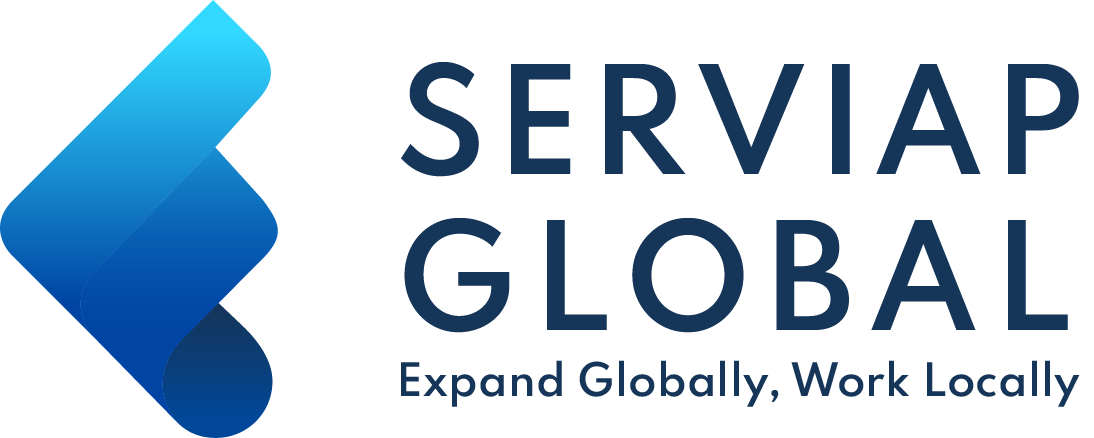Table of Contents
Germany is known for its technologically innovative workforce, large economy, and stable government.
As the largest economy in Europe and fourth-largest economy in the world, Germany has a lot to offer to companies seeking to engage in the European single market. It is well-positioned to meet the needs of industry and manufacturing in the coming years.
SERVIAP can help with your global expansion needs. Contact us today to learn how you can expand your business with PEO in Germany.
Tech Graduates & Workforce
One of the greatest advantages to opening a business in Germany is access to its skilled workforce. Germans are renowned for their educational background. Most Germans attend highly-regarded universities and colleges. The majority of them attend courses in Science and Engineering.
Germany is also known for being a haven for immigration and diversity. More than 10 million people from other countries call Germany their home. This co-existence of various cultures and religions has given rise to a lively, international arts and culture scene.
In addition to its reputation for diversity, family is known to play an important role, too. Regulations in Germany are in place to ensure that the family is taken care of and an appropriate balance between work and leisure is respected.
Key Sectors for Local Activity
The largest industries in Germany include:
- Machinery, Automotive, and Aviation: Germany has a proven engineering tradition with such companies as BMW, Daimler-Benz, and Volkswagen. In addition to consumer vehicles, the country has a well-known defense aviation manufacturing industry.
- Chemical and Medical Industry: Chemicals, pharmaceuticals, and medical equipment are well-known within Germany and are exported to locations all over the world.
- Energy and Environmental Technology Industry: Germany leads the globe in the production of green energy and environmental technologies.
Other significant German industries include electronics, consumer, and service industries.
Key Sectors for Outsourcing
Due to the scientific prowess of its workforce and the desire of the government to preserve equality and social programs for its residents, outsourcing is not a key sector in Germany. Companies seeking specific engineering or IT skills may seek to employ German workers or contract them.
To reduce expenses, German companies may outsource business process activities to areas where the workforce is skilled. Such activities may include low-level accounting transactions, human resources, or customer service.
English Speakers
The proportion of English speakers in Germany is much higher than that in countries such as France, Italy and Spain. Approximately 56% of the population speaks English. Areas with significant tourism or multinational business will see a greater concentration of English speakers.
Average Wages
The average salary in Germany is EUR 47,700. Salaries vary based on the position held, experience in the field, and the location of the individual. In addition to the salaries received, employees receive a wide range of benefits, including significant holiday time and a state pension.
Minimum salaries are EUR 11,520 per year, while top salaries can be as high as EUR 204,000.
Education also plays a significant factor in determining salaries. On average, people with a Master’s degree can expect to earn 70% more than those with only a high school diploma.
Prominent Cities for Business
Several cities in Germany stand out as good places for business:
- Berlin: Berlin is known as a hub for media, innovative technologies, and manufacturing. It is a large city with a highly skilled population. The city is also a leader in energy and environmental technology.
- Munich: Munich is a well-known city for industrial technology, including engineering, innovative technology, and the health industry. The cost of living in Munich is higher than in other German cities but is generally offset by high wages.
- Frankfurt: The financial hub of Germany, this city is known for its large banks and huge airport. It also boasts a low unemployment rate, typically hovering somewhere below 5%.
- Cologne: As the home to many manufacturing and business industries, Cologne has a highly developed economy. The automotive, media, and insurance industries all form a significant part of the Cologne economy.
Other cities to consider include Stuttgart, Hamburg, and Dusseldorf.
Turnover Rates
Turnover rates in Germany are comparable with other highly industrialized countries. Unemployment generally stays between 5 and 8%.
Is Germany Right for Your Business?
SERVIAP is a leading Professional Employer Organization (PEO) ready to help your business expand operations throughout the Western Hemisphere. PEO is a model of co-employment, where we assume total responsibility for your talent, allowing you to focus on the strategic activities of your organization. Contact us today to learn more about how you can expand your business in Germany.










